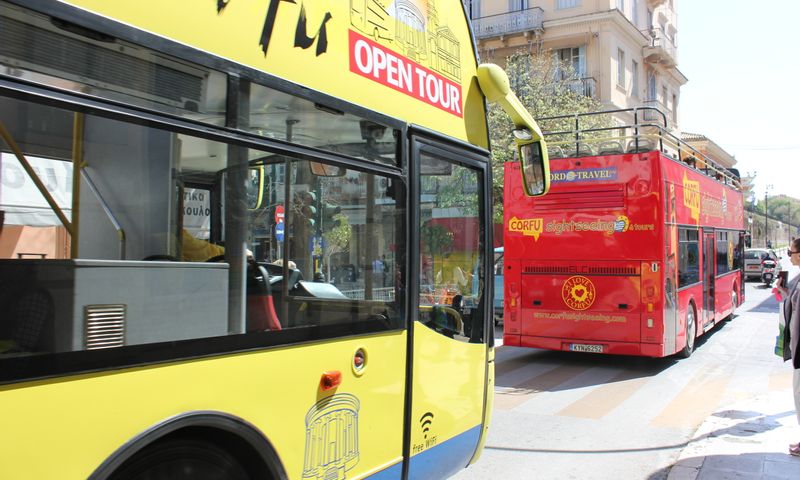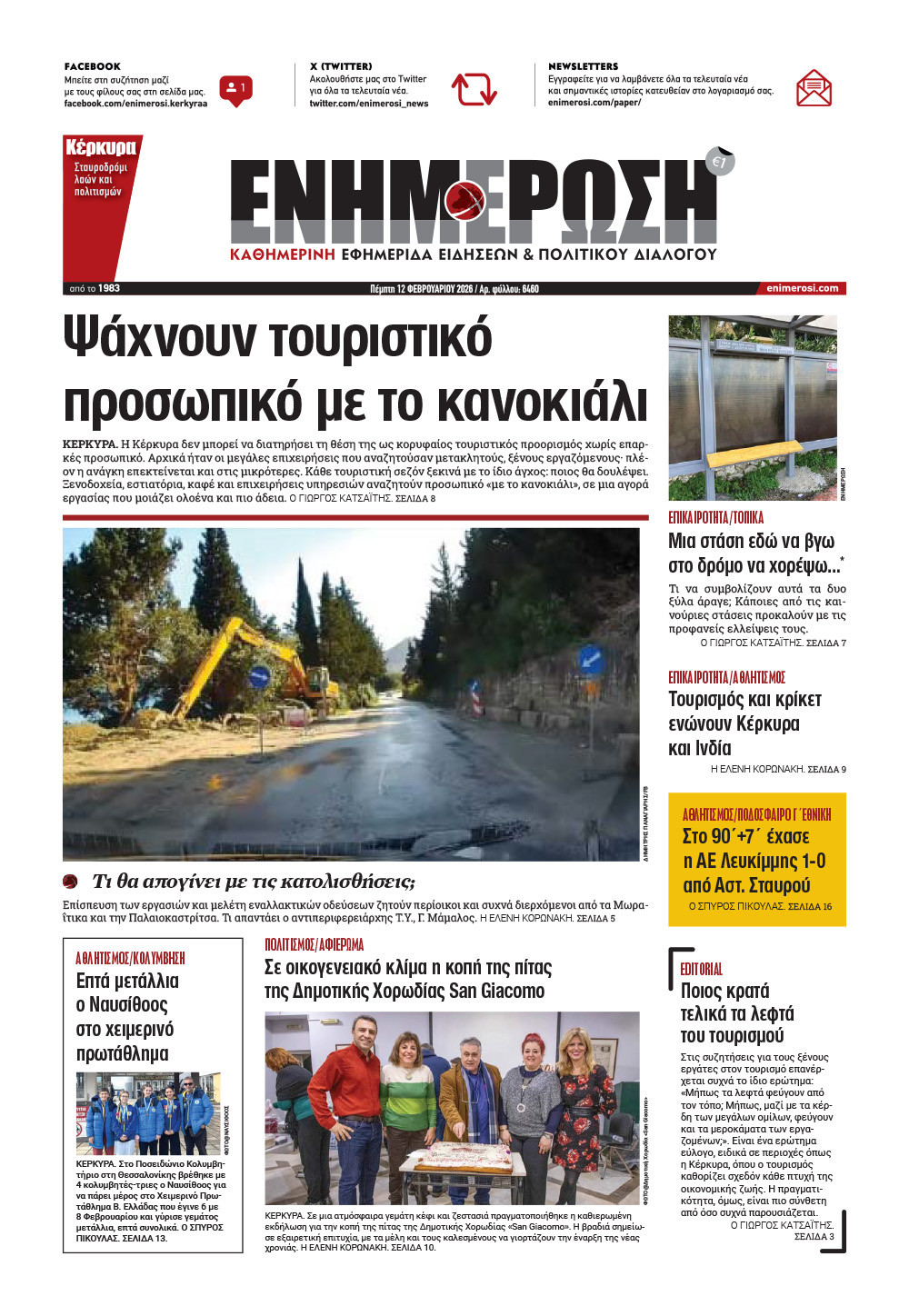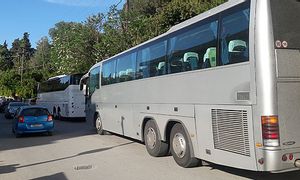Open-topped buses: municipalities to have a say in the matter

The requirements for the operation of open-topped buses and tourist trains as well as the use of quad bikes will be determined in collaboration with the Ministry of Tourism and local authorities.
The requirements for the licensing and operation of open-topped tourist buses and tourist trains as well as quad bikes will be determined in collaboration with the Ministry of Tourism and the Central Greek Municipalities Association (KEDE). The Minister of Transport, Christos Spirtzis, stated in Parliament at yesterday’s plenary session, “We are going to have a transitional period of 1 month in order to prepare a sensible framework together with the Ministry of Tourism and local governments so that local governments can finally have a say in where these vehicles can operate and the traffic volume and load that is to be allowed on each road.”
Licences to be granted through tendering procedure
According to the initial provision of the transport bill, “Before open-topped tourist buses can be allowed to operate, the traffic capacity of the road network to be used and how passable the roads are have to have been determined. This is the responsibility of the Municipality or, if more than one Municipality is involved, the Regional Council. The aforementioned decisions of the Municipal or Regional Councils are re-examined at regular intervals agreed by the local Municipalities or Regions which cannot, however, be less than seven years.
Once the traffic capacity of the road network has been decided, the Mayor or Regional Governor - if there is more than one Municipality – set a deadline of at least 2 months but not more than 3 months for applications to be submitted for the use of specific routes. If the number of applications doesn’t exceed the traffic capacity, all of them are examined. If the number exceeds the traffic capacity of the specific routes, then it is put to tender by the Municipality or Regional Administration and looked at on a case by case basis. The licence to use the specific route is valid for a period of between 5 to 7 years, which is included in the terms if the tender process is used.”
Corfu
The Ionian Islands Regional Governor, Theodoros Galiatsatos, has written to the Ministers of Infrastructure & Transport and Tourism regarding the traffic congestion in Corfu Town. He has requested, amongst other things, that Municipalities be responsible for the approval of special routes and the operation of tour buses, as they are solely responsible for the use and administration of town facilities. However, if the jurisdiction remains as it is written in the aforementioned ministerial decision, he requests that at least the local Municipality’s assent should be required. Last July Corfu SYRIZA MPs Fotini Vaki and Kostas Pavlidis, when addressing the Ministers of Tourism, Transport and Interior, also requested that Municipalities should have full responsibility for licensing since, as things stand, the local authorities are only asked for confirmation and not approval.
Quad bikes
The four-wheeled motorcycles (quad-bikes) that fill our islands every summer have triggered a conflict between the Ministry of Transport and the newly-formed Pan-Hellenic Tourist Vehicles Federation.
According to an article in the bill submitted to Parliament, “Four-wheeled motorcycles with engines up to 125 cc are not permitted on asphalt roads” a regulation of undoubted significance for the upcoming tourist season.
The initial intention of the Ministry was that four-wheeled motorcycles in general be prohibited, but the bill now states that those up to 125cc are prohibited whereas those with a higher capacity are permitted.
“80% of quad-bikes are now prohibited”
Despite that, the prohibition forces almost 80% of ATVs in Greece, and especially the islands, out of circulation. Tourism professionals claim that this will create a survival problem for thousands of car and motorcycle rental companies.
Representatives of organizations in seven island tourist destinations (Corfu, Cephalonia, Santorini, Mykonos, Paros, Naxos and Kos) visited Athens to meet with the relevant administrative bodies in an effort to have the prohibition suspended.
The statistics
Tourism professionals, referring to Greek Police statistics, state that:
In 2015 out of 739 fatal road accidents, 11 (1.5%) involved ATVs.
In 2016 out of 752 fatal road accidents, 2 (0.3%) involved ATVs.
In the first 6 months of 2016 out of 296 fatal road accidents, 2 (0.7%) involved ATVs.
“Apart from the fact that statistics indicate that the numbers are decreasing in the years for which the Greek Police has provided us with records, these statistics relate to all ATVs without referring to engine capacity. So one wonders how they have been declared as being dangerous as this doesn’t come from the statistics. We do not know why the Ministry has characterized the small ATVs as being dangerous and prohibits them, whilst permitting the larger ones,” they told journalists.
The representative from the Association of Mykonos Moped and Motorcycle Rental Company Owners, Thanasis Nazos, pointed out that, “Nowhere in Europe is there a distinction between the type of road surface to be used – only asphalt roads or dirt roads.”









